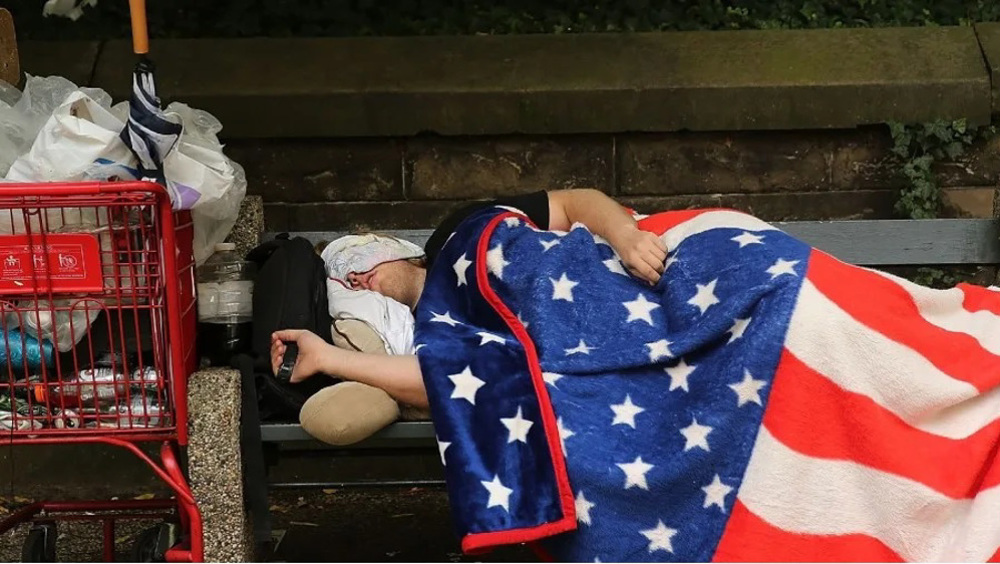US child hunger up 50% amid soaring consumer prices
Ramin Mazaheri
Press TV, Chicago
Data from the United States census has found that child hunger has soared 50% since the pandemic hit one year ago.
Some of the biggest increases have been recorded in the nation’s wealthiest communities, where the unprecedented demand for food aid has overwhelmed local authorities. The federal government has been consumed by political infighting, as Congress only recently passed just the second major household stimulus despite the prolonged economic devastation wrought by lockdowns.
The surge in hungry children is another reminder of the human toll caused by the infamously weak social safety net - and the cutthroat capitalist culture - of the world’s richest country.
The lockdowns have caused supply chain disruptions in food production, leading to increased food prices which show no sign of lowering. While corporations can sometimes navigate disruptions, small grocers and corner stores - which are usually the only place to buy food in poor American neighbourhoods - are forced to pass higher costs on to their customers, usually low-wage workers who are least able to afford price increases.
In February, the UN's Food Price Index rose for the 9th consecutive month, to a level not reached since 2014, a year which saw major food riots in multiple developing countries.
It’s not just food prices which have inflated out of the reach of many recently: Gasoline prices are at their highest point in 6 years, up over 40% in the past 12 months. Home prices are soaring faster than in almost a decade, up 11% over the last year.
Jan. 4: ‘Axis of Resistance’ operations against Israeli occupation
VIDEO | Martyr Soleimani’s legacy inspires pilgrims flocking to Kerman
VIDEO | Rome sit-in decries Palestinian Authority's betrayal of Palestinian cause
VIDEO | IRGC military drills underway in western Iran to boost combat readiness
VIDEO | Scientist-turned anti-hegemonic filmmaker
Yemen slams missile into northern part of occupied territories
VIDEO | An insider's view of the country: Naqsh-e-Jahan Square
Iran Armed Forces confront all violations against the country’s soil: Ground Forces cmdr.









 This makes it easy to access the Press TV website
This makes it easy to access the Press TV website